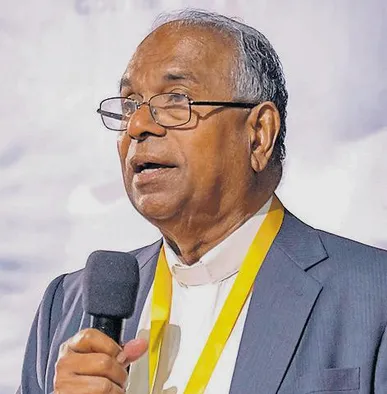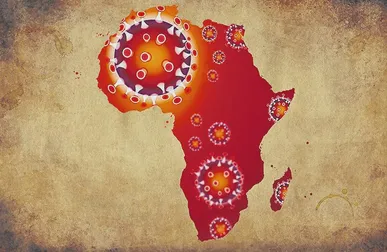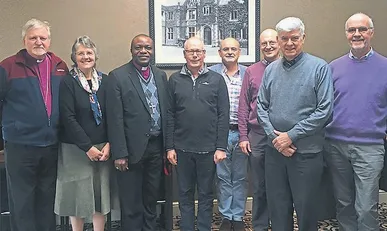
A God-given moment?
Following the postponement of both the
GAFCON Conference in Kigali (June 2020)
and the Lambeth Conference (July 2020 to
2021) Canon Dr Vinay Samuel, the former
General Secretary of EFAC, who attended
the last three Lambeth Conferences, and
was a
founder of GAFCON, offers
the
following analysis.
‘On one side, a 500-year-old institution
(the Church of England as
it
leads
the
Anglican Communion)
is seeking to find
itself
in a world which has no place
for
the certainties of tradition. On the other
side, the GAFCON Primates latch on to a
memory, a tradition that does not change.

Coronavirus: the story for Africa
Though the spread of coronavirus in Africa lags behind that in Europe or the USA, a catastrophic effect is predicted, especially in townships, slums and camps, because so many live closely in already unhygienic conditions.
Most African countries are locked down and present a sad picture – daily labourers cannot get to work in the fields to harvest the food needed, so are not paid and have no food. Because food is scarce, people flout the lockdown in order to find some.

EFAC: Anglican evangelicals set goals for the future
The executive committee of the Evangelical Fellowship in the Anglican Communion (EFAC) (Global) together with the trustees of the English charity EFAC met for three days in November to confer about the opportunities and challenges facing the gospel witness of the Anglican Church around the world.
They affirmed that EFAC is defined by theology, not by a relationship to a bishop. Through fellowships, fora and resources EFAC builds on the five marks of mission: